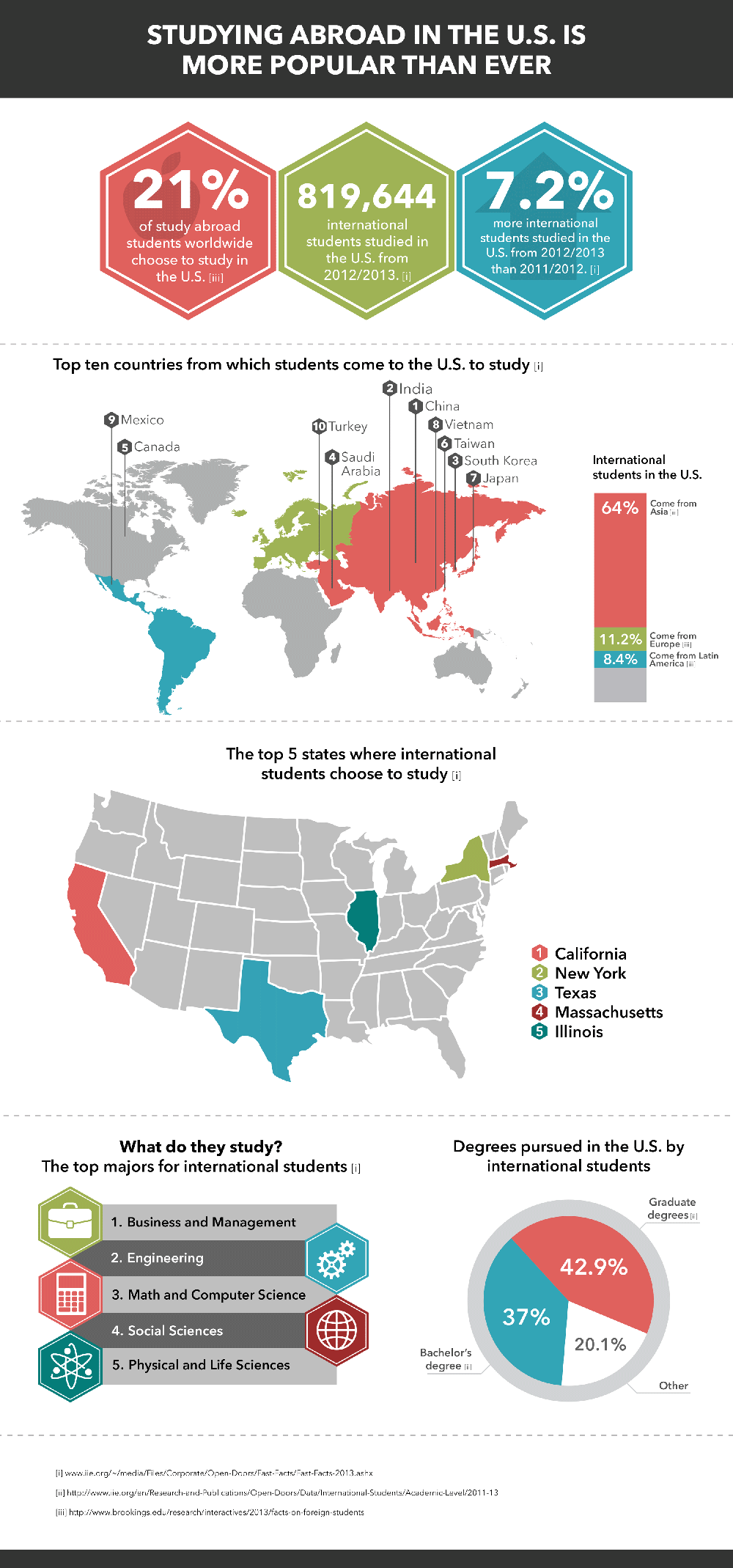If you’re planning to study abroad in the United States, there are plenty of universities in the USA that offer opportunities for international students. In fact, 21% of study abroad students worldwide choose to study in the USA at one of the many colleges and universities that welcome international learners.I Let’s look at some key points of interest below, which may help make it easier to choose the American school for you.

What are the most popular states for international students?
Wondering which parts of the U.S. attract the most international students? Students who study in America can choose from colleges and universities in many geographically and culturally diverse states. The five most popular states for international students are California, New York, Texas, Massachusetts, and Illinois, in that order.II You can find great schools in other parts of the country as well.
What’s difference between an Accredited or Non-Accredited school?
If you’re evaluating universities in the USA, you should check to make sure your prospective school is accredited. Accreditation is used to ensure that colleges and universities uphold certain standards of quality and integrity in everything from academics to student services.
Accreditation is granted by associations that establish strict membership criteria, and while the process is voluntary, most reputable colleges and universities participate. In fact, accreditation in the U.S. is the equivalent of other countries’ ministerial recognition of institutions as part of national education systems.III
If you choose to study at a school that is not accredited, you may run the risk of being scammed by less than credible institutions. International degrees and courses from non-accredited colleges may also be less likely to be transferrable to other schools or accepted by employers.
What’s difference between a Profit or Not-for-Profit School?
If you’re planning to study in the USA, you should understand the difference between for-profit and not-for-profit colleges and universities. Many colleges for international students are not-for-profit, meaning they exist solely to educate students and serve the academic community, but you may also encounter for-profit schools, which are run more like a business with owners and shareholders. For-profit schools may offer flexible schedules, convenient locations, and career-oriented programs, but they are often less selective and more costly than their not-for-profit counterparts. While for-profit schools may be a good choice for some students, most internationally-recognized colleges and universities in the USA are not-for-profit.III
What is the difference between a university and a college?
While pursuing postgraduate education in the USA is almost always called, “going to college,” there are a few small differences between colleges and universities. Universities are often larger than colleges and typically offer both graduate and undergraduate programs. Colleges may have a smaller student body and fewer academic programs. To add to the confusion, some universities, such as Harvard, refer to their undergraduate programs as “colleges.” Keep in mind that there are no hard and fast rules, and either a college or a university may be a good option for you if you’re planning to study abroad in the United States.IV
[I] brookings.edu/research/interactives/2013/facts-on-foreign-students [II]iie.org/~/media/Files/Corporate/Open-Doors/Fast-Facts/Fast-Facts-2013.ashx [III]ed.gov/about/offices/list/ous/international/usnei/us/edlite-accreditation.html [IV] ncsl.org/research/education/for-profit-colleges-and-universities.aspx

